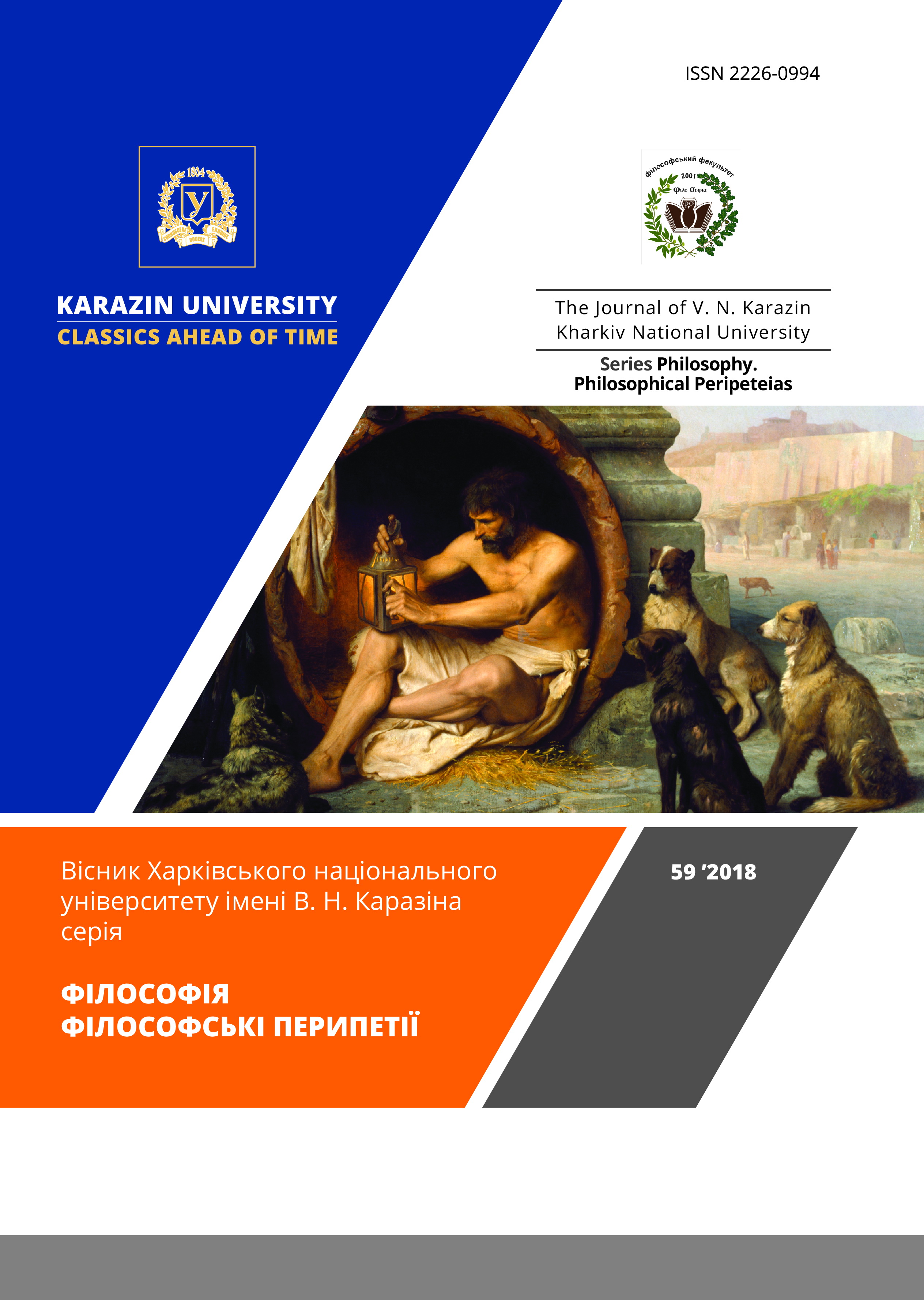GOOD AND OTHER IDEAS OF PLATO
Abstract
The article analyzes Plato’s doctrine of forms, discusses whether the use of the concept of Plato’s theory of ideas (forms) is justified, noted that Plato’s views on this matter are inconsistent and contradictory and that there is, in fact, no theory of forms in Plato’s philosophy. A special place in the philosophy of Plato is the idea of good, which he treats as the highest idea. An analysis of the Platonic understanding of good shows that there is no clear and articulated explanation for Plato in relation to this idea. Plato has the idea of good, but he has no conception of good, and he speaks about good without the expanded definition of this concept. To explain the content of the idea of good, Plato uses allegories. The most famous of them is the likeness of the good of the Sun in the «Politeia» dialogue. The article poses the question of why Plato needed the concept of «idea» and «good» if he did not have a clear understanding of what they are. The author believes that there are two reasons for this. The first of them is pedagogical: Plato deliberately does not answer any of the important issues related to the existence of ideas, the relationship of ideas and things, the relationship between the ideas themselves. Plato reveals all these difficulties, but gives his readers the opportunity to understand these problems independently. The second reason is that Plato’s ideas are not intended for the knowledge of being, they are not philosophical categories. This is especially evident in the case of a good idea. The author of the article concludes that the notion of good first appears in Platos ethics and only then becomes ontological. Plato’s ontology in general is intended to justify his ethics and politics. Proceeding from this, the author comes to the conclusion that the ideas of Plato have a religious nature, and Plato himself is not a philosopher, but a myth-creator, a religious prophet and a teacher.
Downloads
References
/References
Losev, A. F. (1993). Essays on Ancient Symbolism and Mythology. Moscow: Nauka. (In Russian).
Plato. (2006–2007). Works (Vol. 1–4). (A. F. Losev & V. F. Asmus, Eds.). Saint Petersburg: St. Petersburg University Press; Oleg Abyshko Publishing House. (In Russian).
Festugière, A.-J. (2009). Contemplation and contemplative life according to Plato. (A. S. Gagonin, Trans.). Saint Petersburg: Nauka. (Original work published 1978). (In Russian).
Sesemann, W. (2010). Plato’s Ethics and the Problem of Evil. (V. N. Belov, Trans.). Kantian journal, 1, 75–89. (Original work published 1912). (In Rusian).
Shichalin, Y. A. (1989). Two versions of Plato’s «Phaedrus». In Y. A. Shichalin (Ed.), Plato. Phaedrus (pp. VIII–LXXIII). Moscow: Progress. (In Russian).
Hyland, D. A. (2002). Against a platonic theory of forms. In W. A. Welton (Ed.), Plato’s Forms. Varieties of Interpretation (pp. 255–287). Lanham: Lexington Books.
Лосев А. Ф. Очерки античного символизма и мифологии / сост. А. А. Тахо-Тоди; общ. ред. А. А. Тахо-Годи и И. И. Маханькова. М.: Мысль, 1993. 959 с.
Платон. Сочинения: в 4 т. / пер. с древнгреч.; общ. ред. А. Ф. Лосева и B. Ф. Асмуса. СПб.: Изд-во С.-Петерб. ун-та; Изд-во Олега Абышко, 2006–2007.
Фестюжьер А.-Ж. Созерцание и созерцательная жизнь по Платону / пер. с франц. А. С. Гагонина. СПб.: Наука, 2009. 497 с.
Сеземан В. Э. Этика Платона и проблема зла / пер. с нем. и послесл. В. Н. Белова. Кантовский сборник. 2010. Вып. 1. С. 75–89.
Шичалин Ю. А. Два варианта платоновского «Федра». Платон. Федр. М.: Прогресс, 1989. С. VIII–LXXIII.
Hyland D. A. Against a platonic theory of forms. Plato’s Forms. Varieties of Iterpretation / ed. by W. A. Welton. Lanham: Lexington Books, 2002. pp. 255–287.
Authors who publish with this journal agree to the following terms:
- Authors retain copyright and grant the journal right of first publication of this work under the terms of a license Creative Commons Attribution License 4.0 International (CC BY 4.0).
- Authors are able to enter into separate, additional contractual arrangements for the non-exclusive distribution of the journal's published version of the work (e.g., post it to an institutional repository or publish it in a book), with an acknowledgement of its initial publication in this journal.
- Authors are permitted and encouraged to post their work online (e.g., in institutional repositories or on their website) prior to and during the submission process, as it can lead to productive exchanges, as well as earlier and greater citation of published work.






3.gif)




